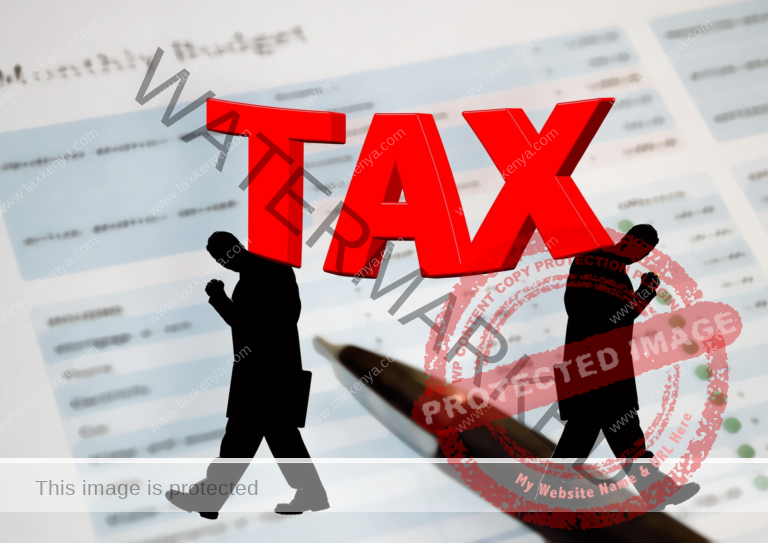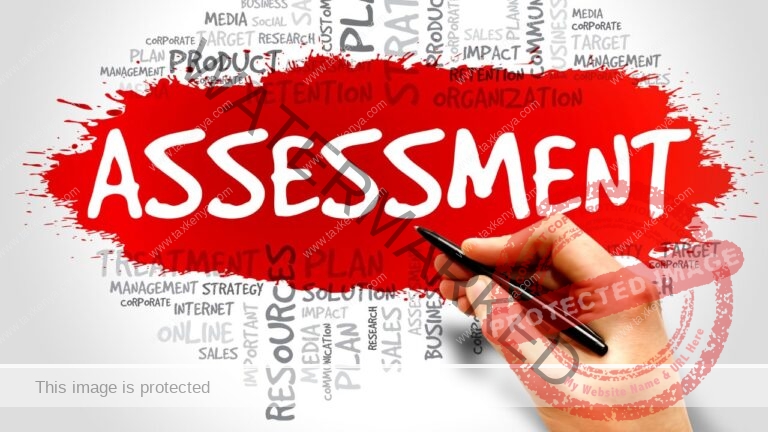Introduction
January 1st 2019 is the effective date of commencement of Presumptive tax in Kenya.
(Post continues after photo)

(Enterprise Road, Nairobi. Photo by Waka)
Presumptive tax is a turnover based tax for small scale business operators.
In our earlier article, we had explained what Presumptive tax is. We had also raised our concerns. We hope that the concerns have been addressed by the relevant authorities.
[bha id=’https://www.bluehost.com/track/wakaguyu’ size=’190×60′ variation=’01’ align=’none’]
Kenya Revenue Authority (KRA) has this week put up a Public Notice on Presumptive tax in Kenya. In that notice, KRA informed the potential taxpayers the following:
Authority for Levy Presumptive tax
The authority to levy the tax is anchored in the Finance Act, 2018 having been proposed in the Finance Bill, 2018.
Effective date
The effective date is 1st January 2019. This means that the tax will start being levied from that date onward. Since the law is rarely applied retrospectively, no Presumptive tax is due on business permits or licenses acquired or renewed before that date in 2019.
Qualified persons
There are various qualifications for Presumptive tax. The following are some of those qualifications:
- The person must be in business.
- The business must require business permits or licenses from the County government.
- The persons will either be acquiring the business permits or licenses for the first time or renewing the business permits or licenses.
- The persons must be having a turnover of less than kshs 5,000,000.
Qualified persons should apply online for Presumptive tax registration.
Turnover threshold
The annual turnover threshold is kshs 5,000,000 for a period of twelve months from January to December. This means that persons whose annual turnover is kshs 5,000,000 or less for twelve months should apply for Presumptive tax.
Annual turnover is the total sales without deducting the purchases and expenses for twelve months. The turnover can be either:
- Actual turnover – where the person has already been in business for the last twelve months.
- Anticipated turnover – where the person has not transacted any business for the last twelve months but anticipates transacting business in the next twelve months from January 2019 and the turnover is expected to be less than kshs 5,000.000. This is a new business.
This means that the qualified persons are either in business or they will commence business from January 1st 2019.
Persons who do not qualify
It is not every business that qualifies to pay tax under Presumptive tax. The following types of businesses do not qualify for Presumptive tax registration:
- Management services such as businesses management etc.
- Professional services such as consultancies, advisory services, auditing, legal services etc.
- Rental business for both commercial and residential rent.
- Incorporated companies under the Company’s Act in Kenya or foreign incorporation.
From this list, it is obvious that the persons that qualify for Presumptive tax are:
- Persons trading in own names.
- Sole proprietors.
- Partners including husband and wife.
Tax rate
Currently, the tax rate is fifteen per cent (15%) of the amount of business permit or license payable to the County government.
When is the tax paid?
Presumptive tax will be paid at the time of acquiring or renewing business permits or licenses. This will be in January for those renewing business permits or licenses.
For those who will be acquiring the business permits or licenses for the first time; it is at the time when paying for those business permits or licenses. This can be in any month during the year 2019 and subsequent years.
It is important to note that business permits and licenses are renewed every year.
How and where is Tax paid?
Once a person successfully registers for Presumptive tax, they should get ready to pay the tax. On the day that they will be paying for the business permits or licenses fees to the County governments, the person should also generate a pay-in-slip in i-Tax for Presumptive tax and provide all the details.
The person will get a Payment Registration Number (PRN) for presumptive tax payment. The person has the option of either paying the tax using the provided M-Pesa pay bill number 572572 from the comfort of their phones or through the partner banks which are listed in I-Tax.
Therefore, Presumptive tax is not paid to the County governments but direct to KRA through either M-Pesa or partner banks. The tax should be paid at the time of paying for business permits and licenses are paid.
Examples of business that qualify for Presumptive tax
Some very many persons qualify for Presumptive tax registration and payment. The persons are in every spectrum of the society but the majority are in the lower strata of the society. However, one thing that they have in common is that they are small scale, business operators.
Business operators of the following businesses are some of the persons who qualify for Presumptive tax registration in Kenya.
- “Mkokoteni” operators.
- Kiosks operators.
- Hawkers.
- Water vendors.
- Food vendors including those who sell “githeri”, tea, mandazi, sugarcane, fish, uji (porridge), chapatti, samosas, eggs and “kachumbari” etc.
- Tailors.
- Cereal sellers.
- Garbage collectors.
- Carpenters.
- Tree nursery operators.
- Milk vendors.
- Small scale breweries such as those producing traditional alcohol e.g. “muratina”, chang’aa, busaa etc.
- Bakers.
- Maize roasters.
- Charcoal sellers.
- “Mitumba” sellers.
- “Mama na baba mboga”
Questions
There are a few questions that remain unanswered as we approach the Presumptive tax commencement date. The following are five questions:
- What should be paid first – business permits and licenses fees or Presumptive tax?
- Is evidence of payment of Presumptive tax a prerequisite for paying business permits and licenses fees?
- If payment of Presumptive tax is not a prerequisite for paying business permits and licenses fees, how will KRA ensure that the persons eventually pay Presumptive tax?
- What are the penalties for failure or delay in paying Presumptive tax?
- What is the interest for failure or delay in paying Presumptive tax?
Answers to these questions will go a long way in ensuring that Presumptive tax is successful. Taxpayers also require certainty in their business and tax operations.
What should one do before January 2019?
- Acquire a personal identification number (PIN). This is done online through i-Tax platform. For this one requires access to a computer either owned, friends, a relative’s or internet café; email address – official tax matters are currently mostly via emails; and national identification card – it is the official identification document.
- Register for Presumptive tax.
- Have money to pay the Presumptive tax which is at the rate of 15% of the business permits or licenses fees due to the County government from 1st January 2019. This means that the persons should make sure that they save an extra 15% to pay as Presumptive tax.
- For those persons who were under Turnover tax or the normal Income tax operations, they should contact KRA and seek the way forward.
For any clarifications, get in touch with us through the email.
To test your knowledge about Presumptive Tax in Kenya, go to the next post CAT 5: Presumptive Tax in Kenya.
Our Call …. remember to subscribe to get our latest tax articles.
[bha id=’https://www.bluehost.com/track/wakaguyu’ size=’190×60′ variation=’01’ align=’none’]
(Disclosure: This website receives compensation from companies whose adverts appear here. We only promote products that we have used. We are an independent website and any opinions that are expressed here are our own.)
Feel free to send us tax and investments in Kenya questions or topics via email taxkenya@gmail.com that you would wish to be covered in this Website.
Disclaimer
This post is for general overview and guidance and does not in any way amount to professional advice. Hence, www.taxkenya.com, its owner or associates do not take any responsibility for results of any action taken on the basis of the information in this post or for any errors or omissions. Kenyan taxpayers must always rely on the most current information from KRA. Tax industry in Kenya is very dynamic.
©Wakaguyu Wa Kiburi
[about-me id=”1″]
Email: taxkenya@gmail.com
Twitter: @taxkenya
Facebook: fb.me/taxkenya
Youtube: youtube/taxkenya.com shows



